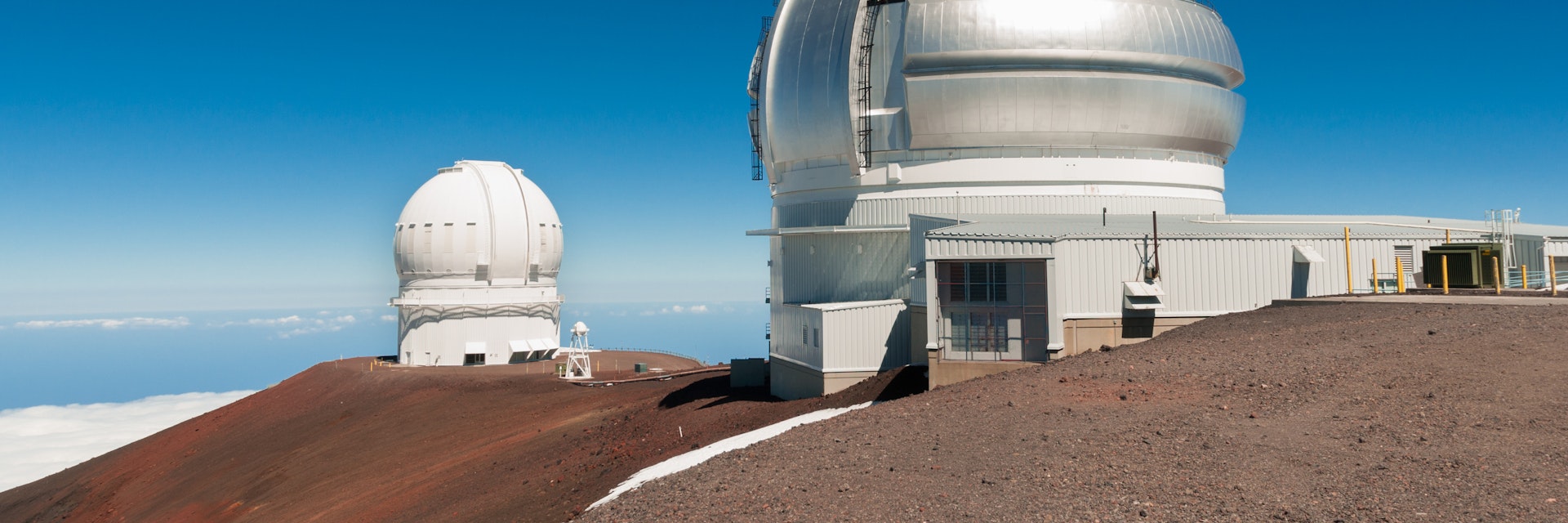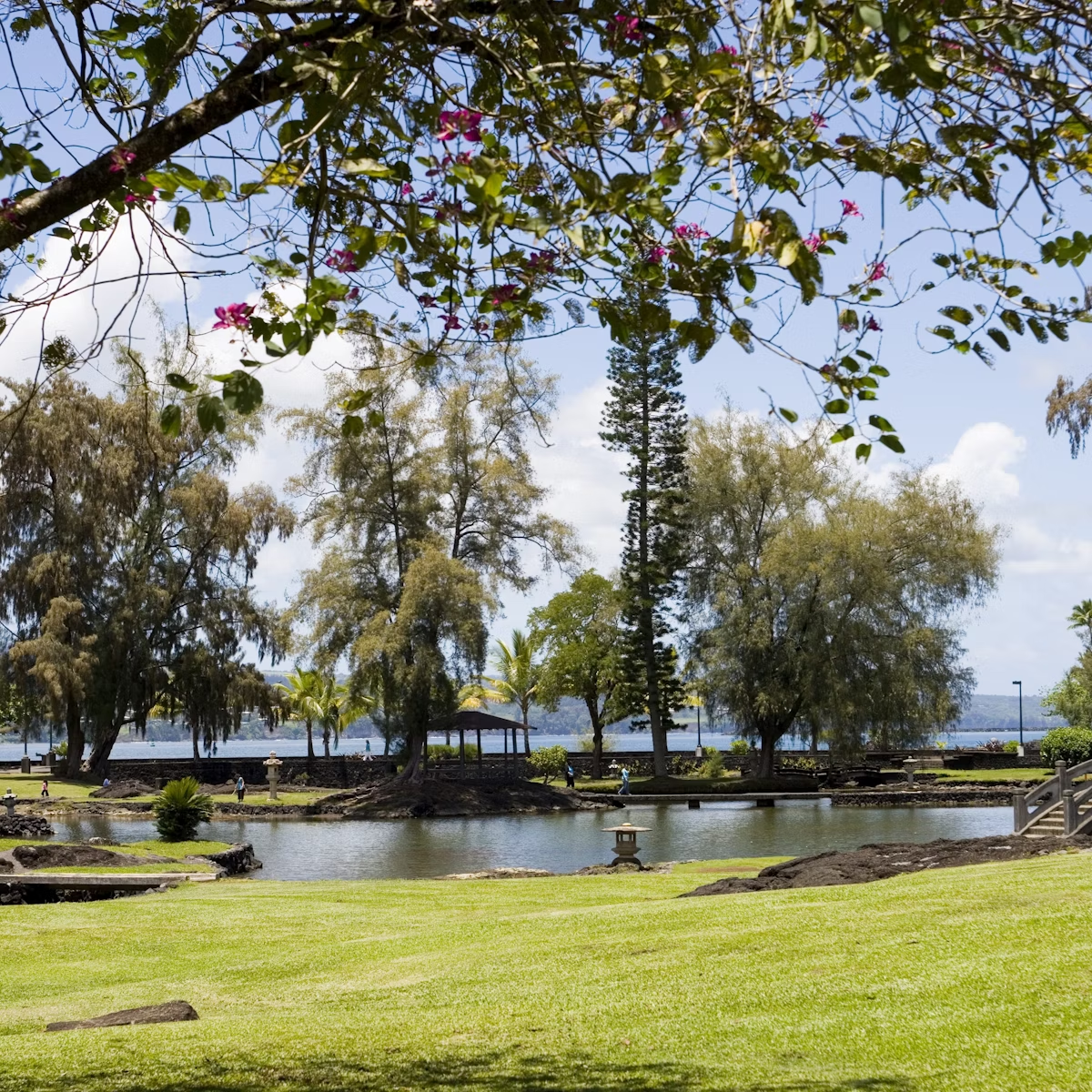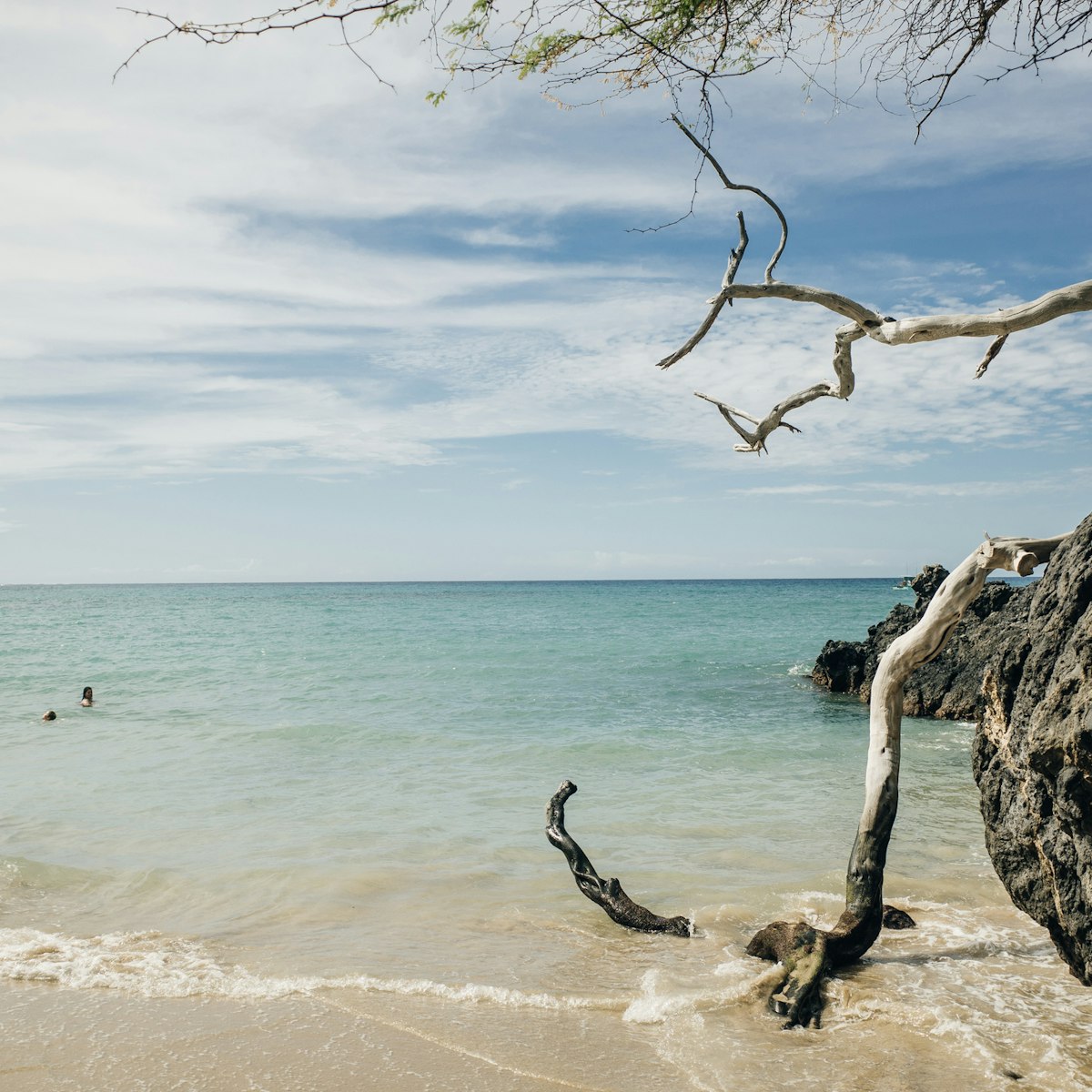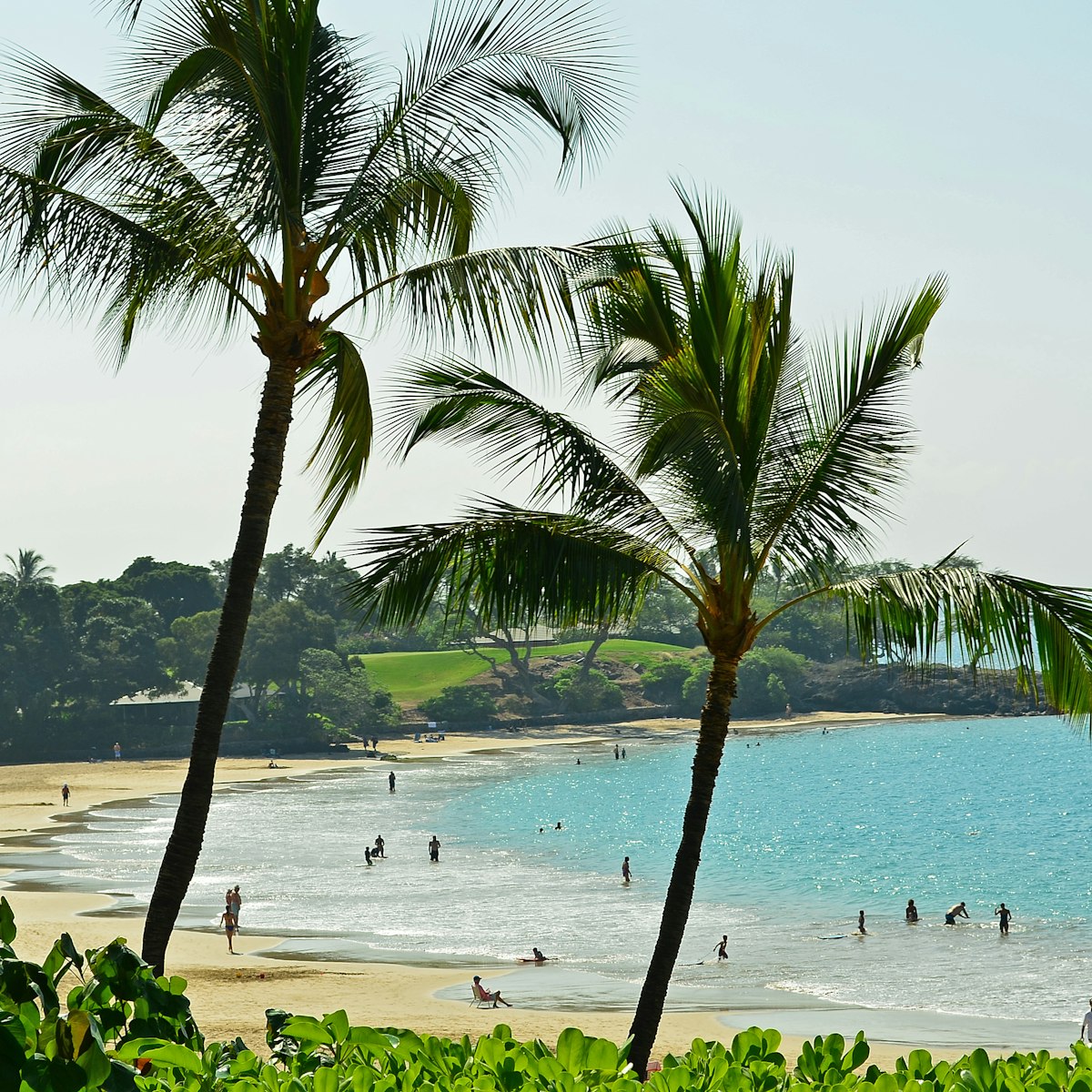At 13,796ft in the air, you are above 40% of the atmosphere and 90% of its water vapor – apparently perfect conditions for growing the giant mushroom-like observatories that have popped up around the summit. Glistening in the sun against the desolate terrain like a human colony on an alien planet, this is the greatest collection of telescopes on earth. You can practically feel the knowledge being sucked out of the sky.
A veritable UN, the mountaintop hosts a bevy of countries administering different telescopes – Taiwan and the USA collaborate on the Submillimeter Array; the East Asian observatory runs the James Clerk Maxwell Telescope (JCMT); and five nations share the Gemini Northern 8m Telescope. Most of these observatories are closed to the public, and none allow public viewing through their scopes.
Sunsets are phenomenal from around the summit. All of Hawaiʻi lies below as the sun sinks into an ocean of clouds while the telescopes silently unshutter and turn their unblinking eyes to the heavens. Look east to see 'the shadow' – the gigantic silhouette of Mauna Kea looming over Hilo. Moonrises can be equally as impressive: the high altitude may make the moon appear squashed and misshapen, or sometimes resemble a brushfire.
Under normal conditions, the public may drive to the summit in the daytime (but you must descend 30 minutes after sunset) but the road was shut down in 2019 for six months due to ongoing protests over the proposed Thirty Meter Telescope. A temporary truce saw the road re-open at the time of writing, but Mauna Kea's future – from a tourism standpoint, anyway – was still very much up in the air.








